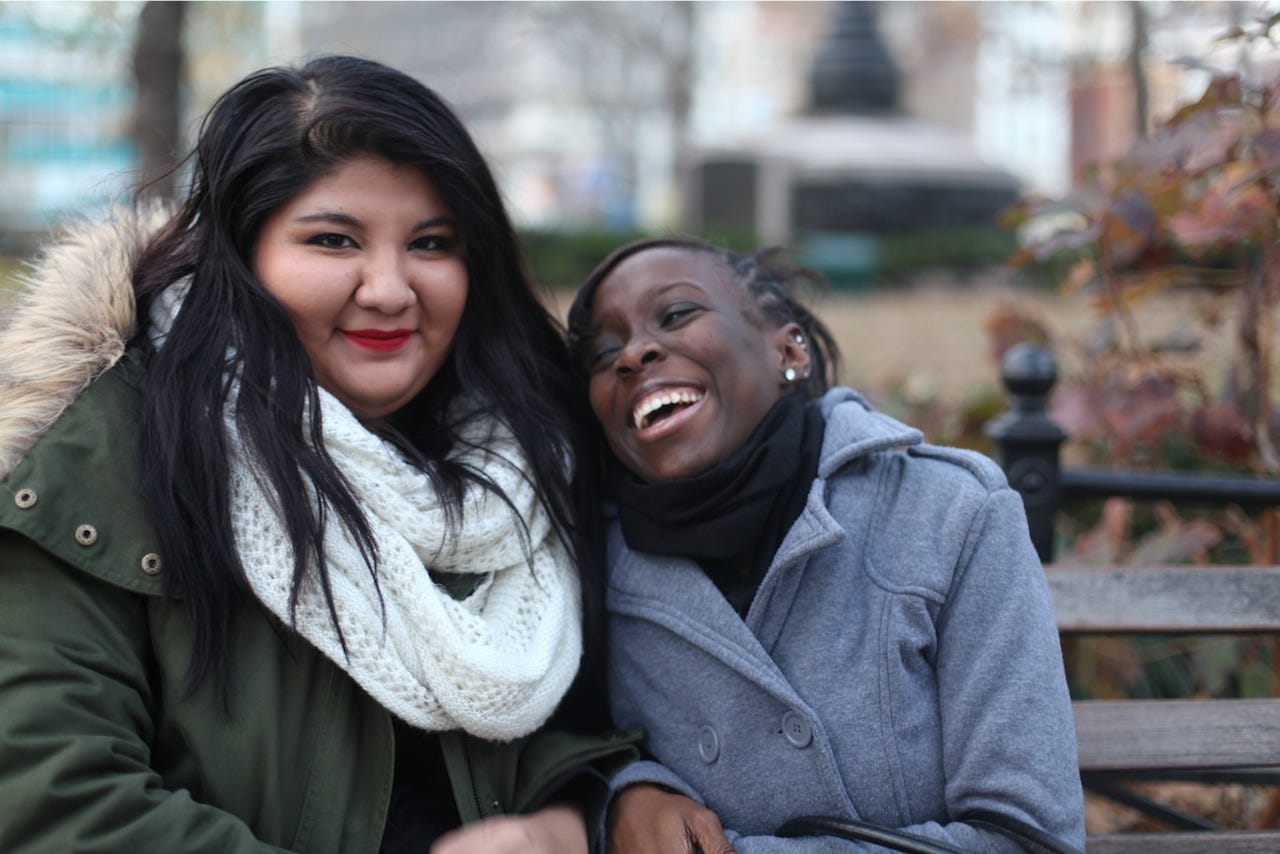Teenage, Undocumented, and Speaking Out
Two young immigrants slowly come to grips with what it means to be undocumented in the only place they call home.
On a cloudy Friday afternoon last March, as thousands of pedestrians passed by and rows of police officers watched intensely, the eclectic crossroads that is Union Square took on an atmosphere unusual even for its own standards. Several dozen undocumented teenagers gathered to share their stories of growing up in the United States anonymously—without immigration papers or social security numbers. The New York State Youth Leadership Council, a nonprofit group led by undocumented young adults and twenty-something volunteers, organized the demonstration and supplied each participant with a black t-shirt bearing the bold slogan: “undocumented, unafraid, unapologetic.” They spoke energetically through megaphones, surrounded by a large crowd and bright yellow banners emblazoned with their unusual admission: “Undocumented.” These demonstrators looked fearless. They weren’t. Coming out of the shadows and exposing their status was a huge risk for each of them—a risk tha…
Keep reading with a 7-day free trial
Subscribe to Narratively to keep reading this post and get 7 days of free access to the full post archives.




